disease testing
We maintain a strict philosophy and practice of bio-security with our herd.
For the 2023 season all animals were reported NEGATIVE for CAE, CL, & Johnes once again for the 3rd consecutive year in a row.
For more information on our testing, visit our testing page.
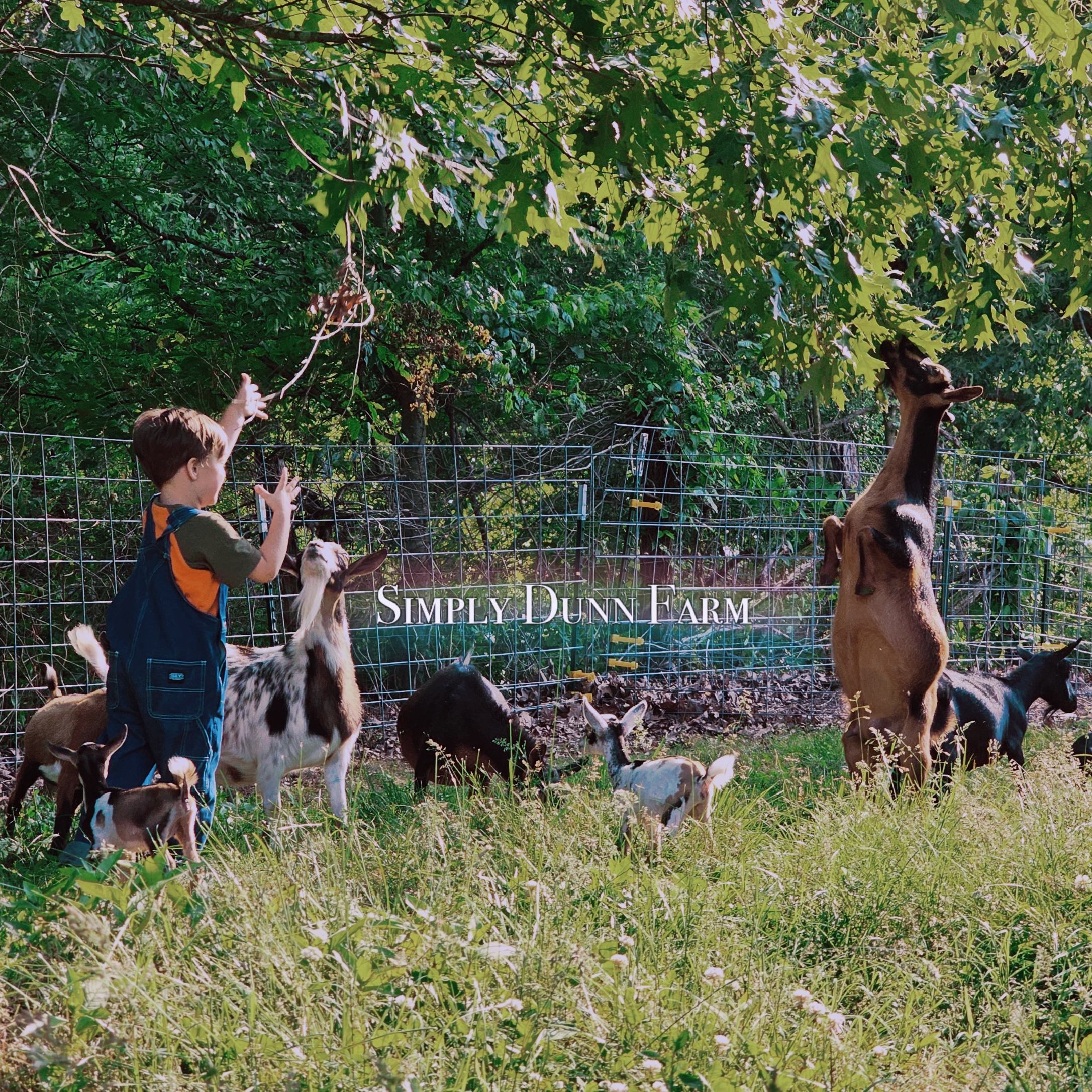
record keeping & documentation
All animals born here whether retained or sold in private sales (breeder to client) has an extensive and detailed custom spreadsheet made for them and sent home with the new owners detailing care from the day of birth to current date (as long as I remember to write it down.) While animals that are not born here, have a slightly different spread sheet made to list care from the date received, incase sold, this keeps new owners up to date with animal's health history and needs.
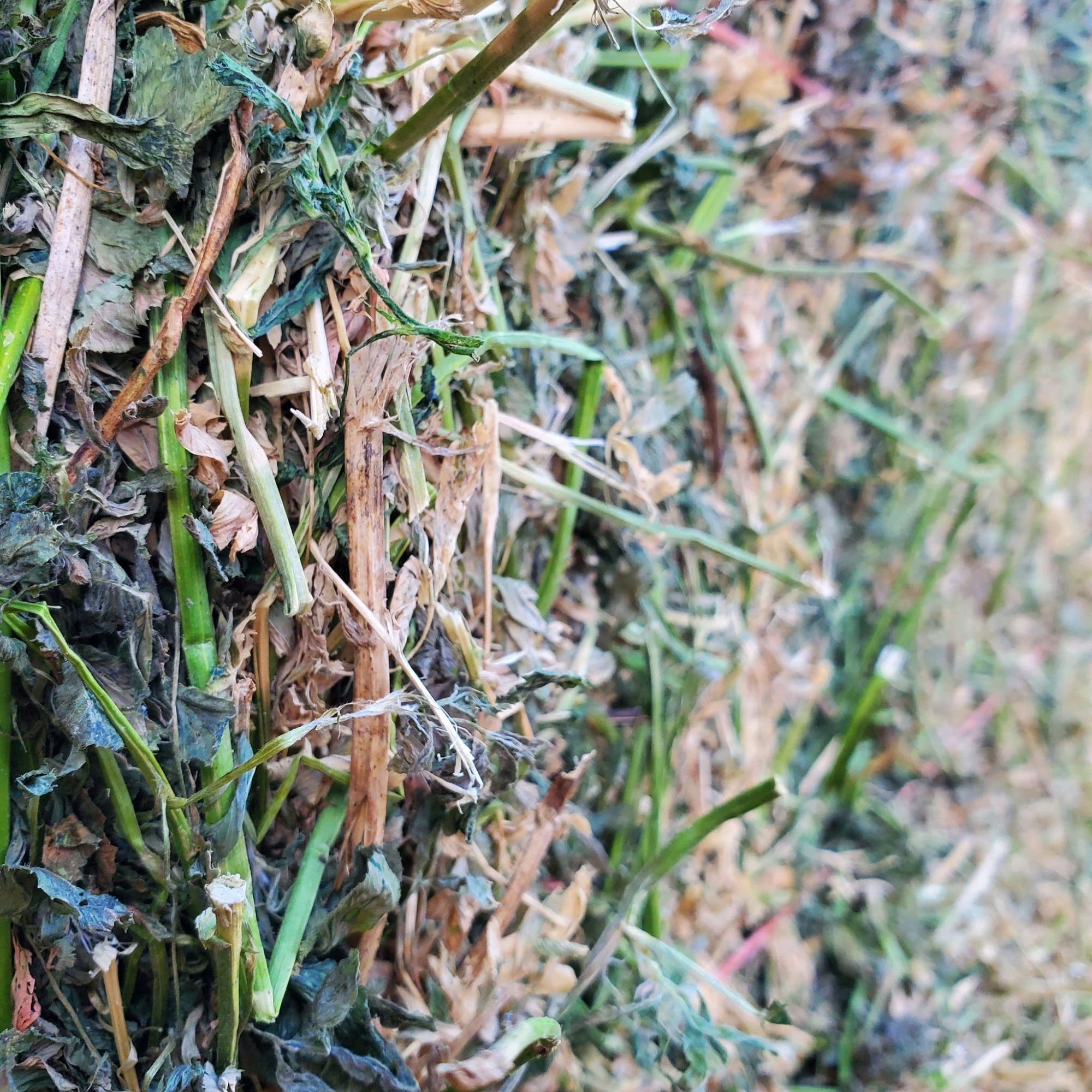
What we feed:
For our animals' primary diet, we prefer a mix of orchard grass, mixed grass, or red river crabgrass whenever possible. If not available, we will use alfalfa hay or any other high-quality hay we can purchase.
Our feeding regimen:
- Our does are allowed access to pasture & forage daily.
- Bucks are "dry-lotted" (for now) - eating orchard grass hay.
- We feed Odom's 16% goat grain (medicated) to bucks, kids, dry does.
- On the milkstand (2x daily) we feed milking does a mix of Blue Seal 18%, beet pulp shreds, & Black Oil Sunflower Seeds currently.
- We provide Purina Goat Minerals -- free choice -- 24/7.
- We provide Stockade mineral -- free choice -- 24/7.
- We Copper Bolus members of the herd as needed.
- We pulse-dose ammonium chloride for bucks as needed.
parasites & resistance
We do not follow a worming schedule. We only treat as needed per individual goat after running fecals & performing the 5-point check.
Management is the best prevention for parasites and heavy worm loads in goats. As a result of our practices, we rarely need to administer dewormers to our animals.
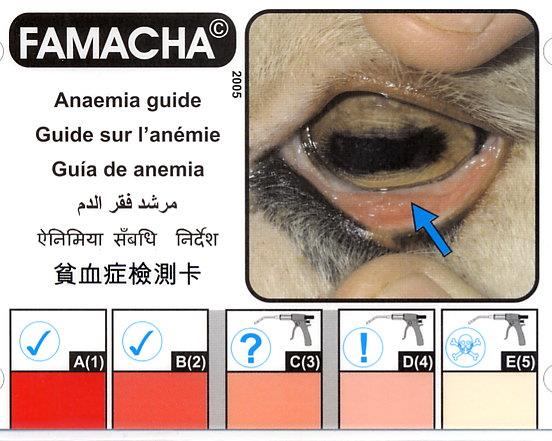
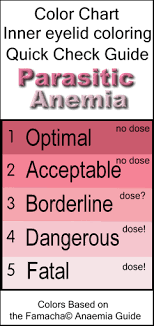
So what helps to stop parasite-overload and resistance?
- Do not worm without running fecals & doing the 5-point check.
- Do not worm all goats at once, but instead as needed per animal.
- Do not feed goats on the ground.
- Clean feeders & water sources frequently.
- Pasture rotation practices - keep vegetation from being overeaten.
- Keep their living quarters clean.
- Do not overcrowd pastures and facilities.
- Invest in genetically sound and genetically hardy/resistant stock.
- Invest in herds who maintain low parasite issues with their stock.
It is important to keep in mind a few major things about dewormers:
- Not all dewormers work effectively against certain parasites.
- Dewormers do not kill nor work against Coccidia.
- Some dewormers are NOT safe to use with young/newborn stock.
- Some dewormers are NOT safe for breeding animals 45days before breeding or 45 days after breeding. Defects & Abortions can occur.
- There are withdrawl periods needed for milk & meat consumption.
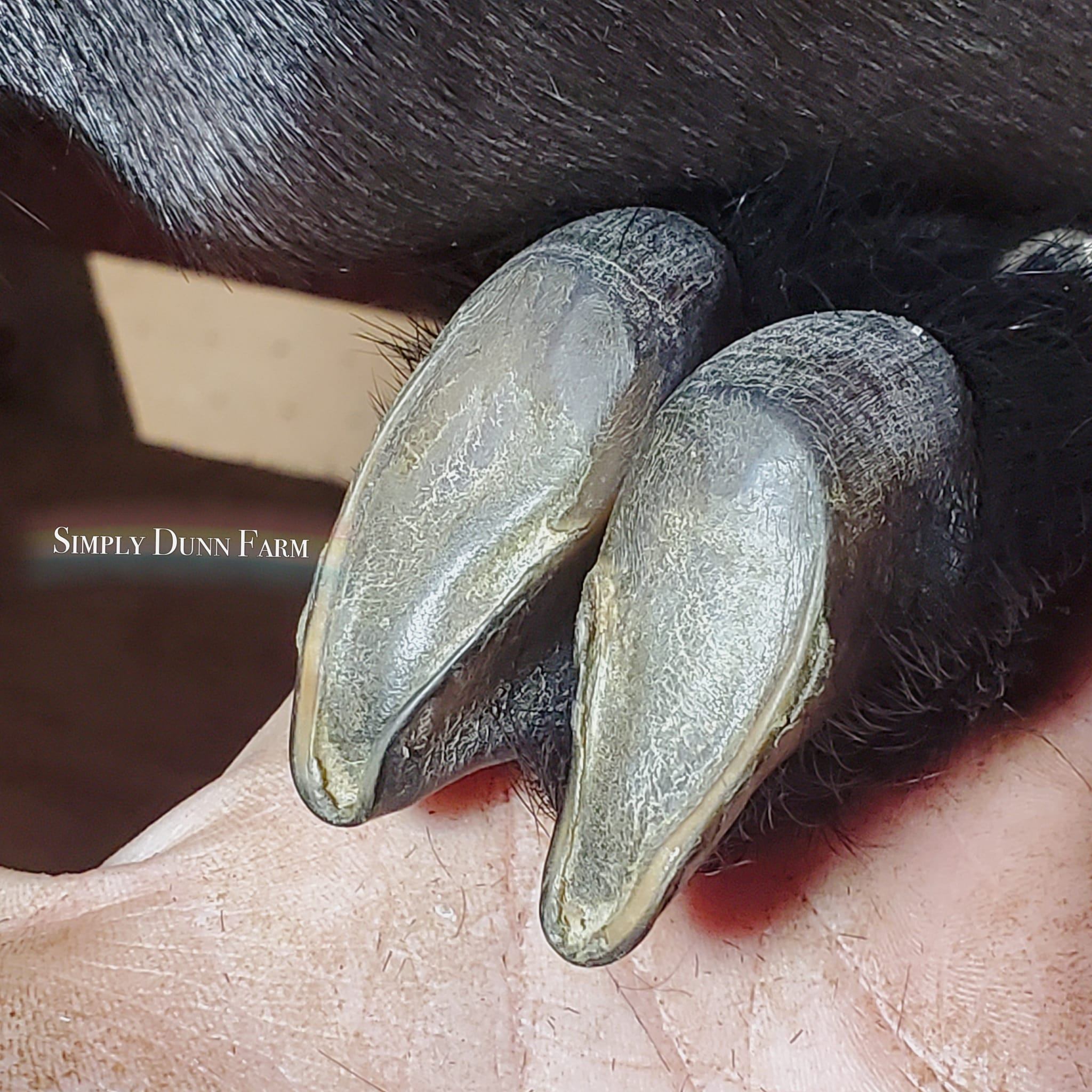
Hoof Maintenance
Solid feet are the foundation for a healthy and well-maintained animal! Hoof trims are performed monthly on every goat with a pair of Capralite's Silverline trimmers.
external parasites
Goats occasionally can become infested with mites, ticks, lice (not fleas!). When this happens it is diagnosed with hair loss, patches/spots of hair missing from chewing, skin becoming red/ raw, and can become fatal if not treated. Thankfully it's an easy fix!
ParagraphSPACE
Goat kid & Breeding Care
ParagraphSPACE
Before any young goats are bred we focus on not just their weight but their width and capacity.
Thurl to Thurl should be wide and be safe for the doe to pass their kids with enough space for us to have room to assist if needed be. We will refrain from breeding until animal reaches appropriate size. We are not in any hurry to kid out young stock that may just need a little more time to mature than others. We make sure all does are in correct condition before any breedings are attempted. The does will have their CDT vaccines 30days prior to kidding for the immunity to pass down to the offspring they are carrying in utero and colostrum. If any assistance is given or needed while in labor, we will consult our veterinarian on whether or not to given medications to prevent infections.
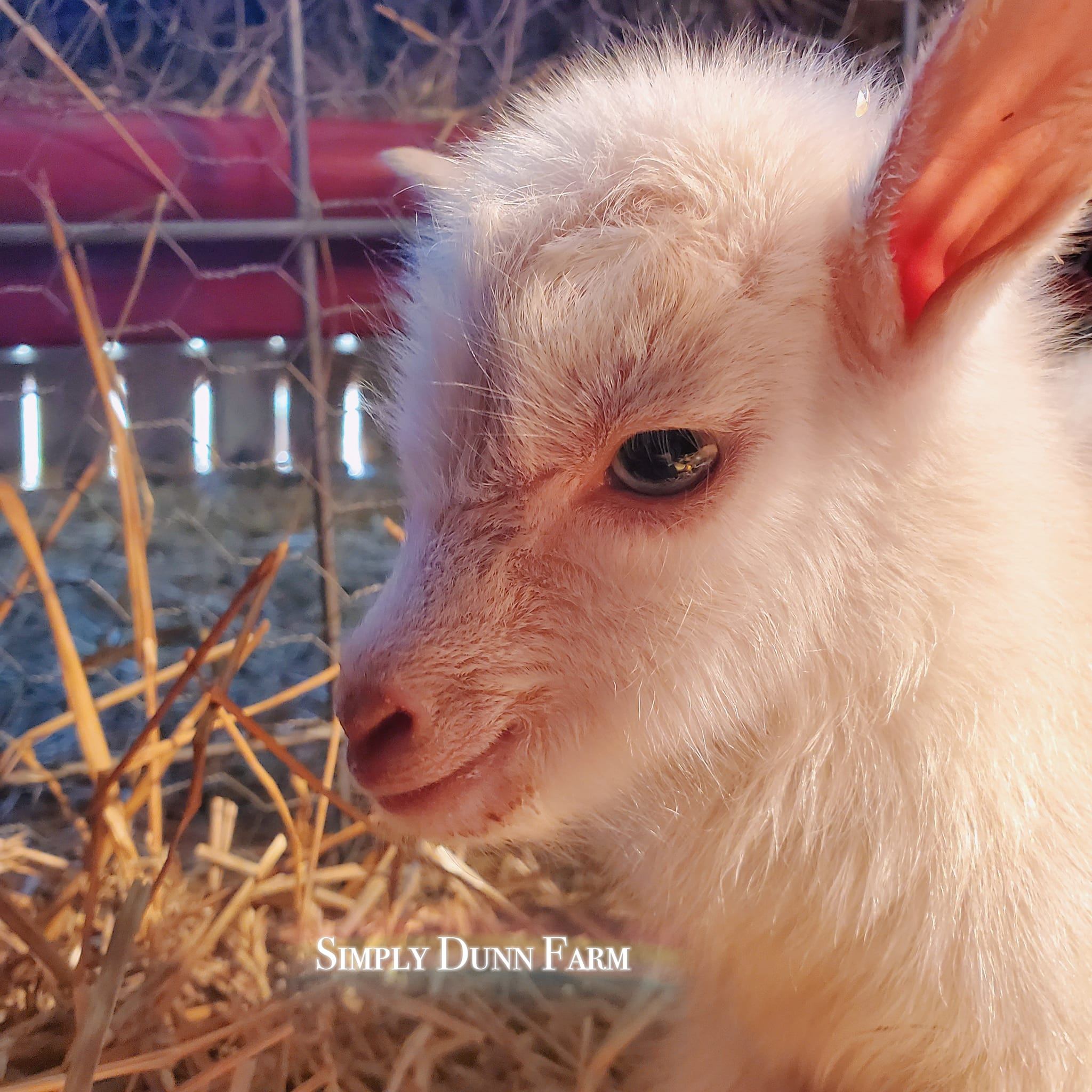
kids care & feeding
Weaned and bottle baby goat kids who will leave us for new homes have been treated for coccidia and parasites, received their CD&T vaccination, tatooed (if registered) and given additional supplements.
To bottle feed, we personally recommend using whole cow's milk from the grocery store if you do not have safe and clean goat milk available from a tested and credible herd. It is not only cost-effective, but we've seen milk replacer being used and often times having tragic results as replacer can be mixed incorrectly and can be harder to digest.
We prefer to use their mother's milk to feed. If you are raising without any goats in milk, source a herd (disease tested & disease free) for clean goat's milk as substitute. If you can not obtain it, invest in whole milk as mentioned above from the store. We free-feed kids as much as they would like to consume 3x a day.
There should be no issues if switched over suddenly from goat's milk to whole cow's milk from the store. However we have practiced in the past of putting in a pinch of baking soda in the first bottle of every day.
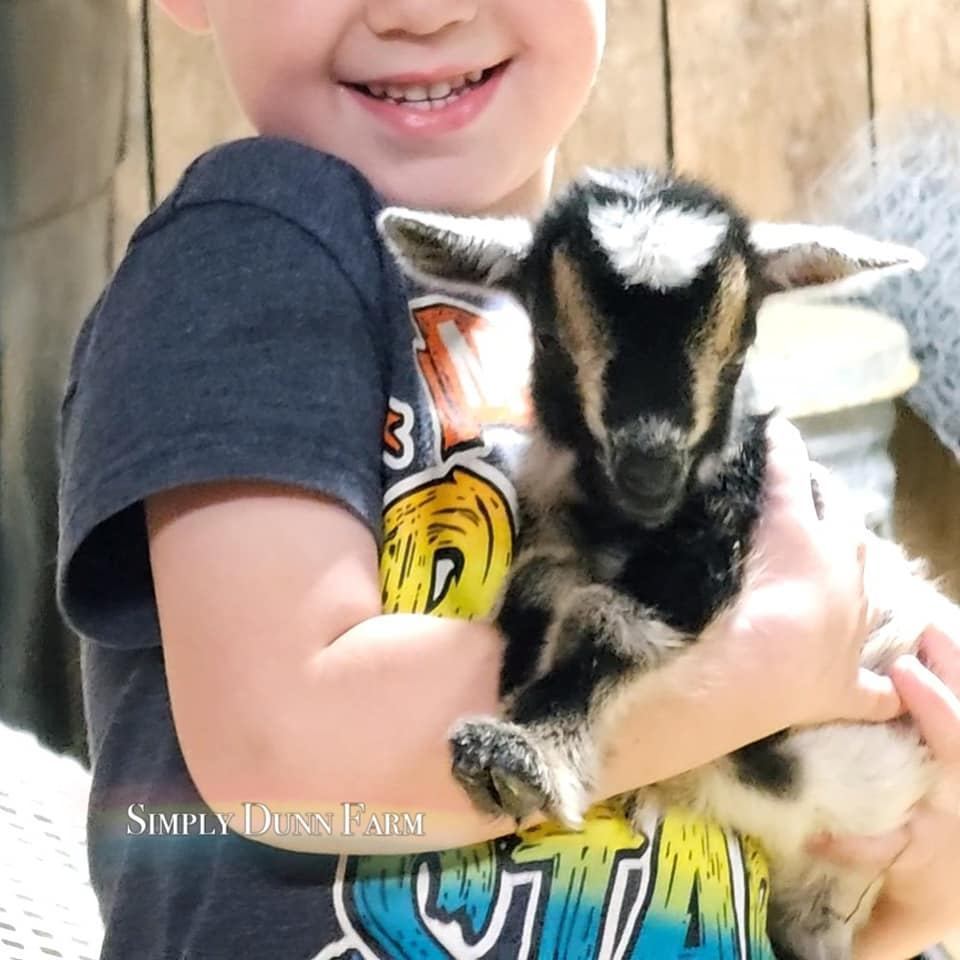
horn status & disbudding
Disbudding is done between the ages of 3 to 10 days old.
We practice disbudding (dehorn through ironing) every goat born on our farm. However we can withhold our disbudding practice if you would like to purchase a kid horned in which you will be required to send a non-refundable deposit for the animal, which will not be transferable to another goat kid if you change your mind.
The topic is not open to debate when asking about our animals.
Please be sure to read our Sales Policy for more information.
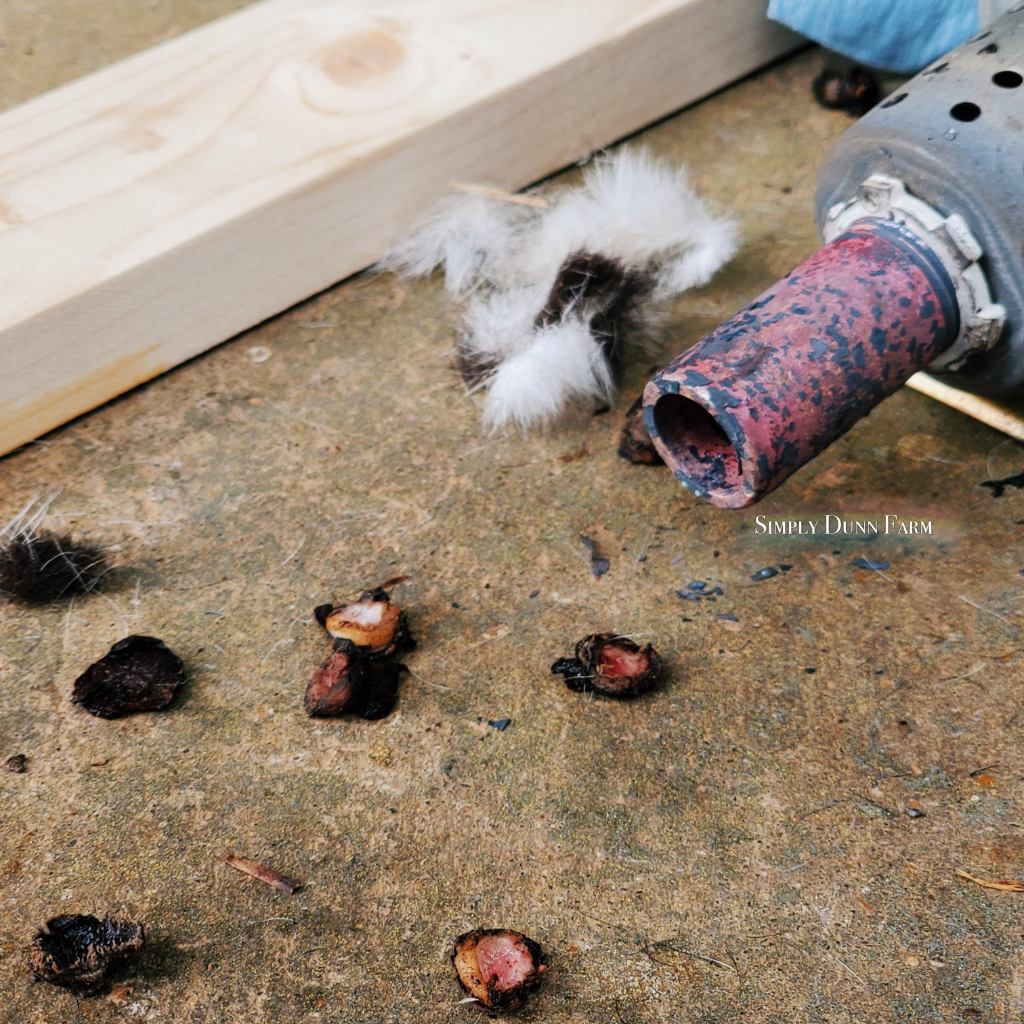
coccidia prevention & treatment
We currently feed medicated goat feed and also practice cleanliness of the goat's habitat by keeping housing clean. We also like to administer everyday coccidia prevention, Calf-Pro.
We give it the first feeding of every day. Starting the prevention on the 2nd week of life. We will continue to give everyday until 4-6months old.
wethering & castration
Wethers are castrated before leaving regardless of age. Most will be done by the age of 4-8 weeks old. We know that the wrong diet and other factors like exercise, water intake and water quality have much more influence on males developing Urinary Calculi or not. So be considerate of those factors and your Calcium:Phosphorus ratio... Which is 2:1 !
Wethering the animal before it leaves our care, ensures that we are only going to allow the best animals that are worthy of being bred.
ParagraphSPACE
Registered breeding bucklings.... or the lack of.
ParagraphSPACE
Our herd prides itself on selling very few registered bucklings every year. Bucks are the most important and influential part of any herd's breeding program. Every year, only 1-3 bucklings are allowed to be considered as herdsires no matter how bad our buck-to-doe ratio may be for that kidding season. This requires us to make the financial sacrifice sell cheaper and neuter and sell as pets, take to the sale barn, or even process extra bucklings for meat.
We do this to show our dedication we have for the breed and impact we wish to make, not income.
As a breeder, we have publicly expressed our concerns over the market being flooded, specifically with registered bucklings.
Not all animals deserve to be kept intact and used as breeding stock, even if they come from the best of pedigrees and the best of our animals.
Rather than contributing to the market further flooding, we want to make sure the bucks we offer to other herds are of the highest quality.
Having strict quality control to not register bucklings in mass also helps us make a real difference for the breed.
It is our intention to continue with this logic even if we become a larger, more successful herd in the future.
Our herd's name and reputation for the quality of animals we register is very important to us and regardless of what we say or do publicly or behind the scenes, we make sure our farm is transparent and true.
Any does if sold as bred are required to have their male offspring sold as wethers, pets, unregistered stock, but never registered since they were not born in our care. (You can read more info about that on the Sales Policy page).
